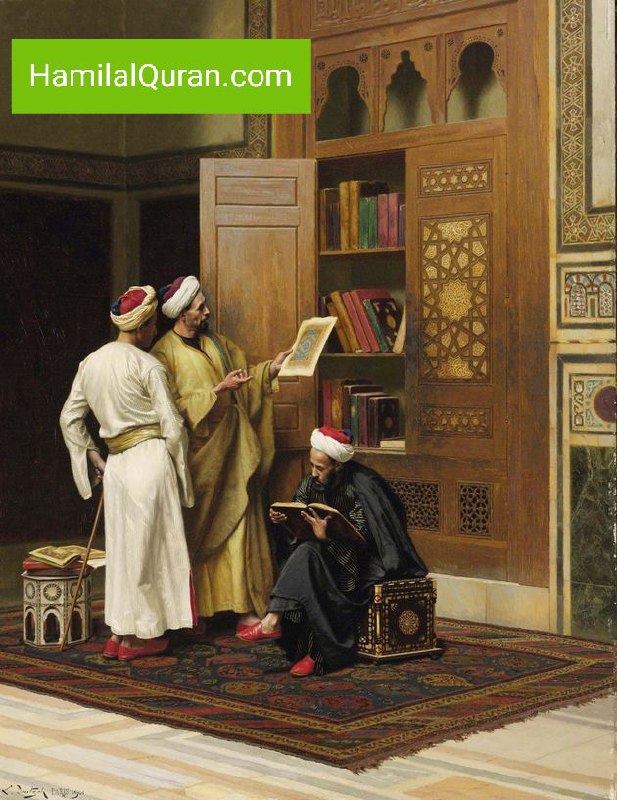Tafsir or the Quran interpretation refers to the interpretation and commentary of the Quran, the study of the Quranic text, with the goal of understanding its meaning, context, and significance.
tafsir Quran is an important field of Islamic scholarship, as it helps Muslims to better understand the Quran and apply its teachings to their lives. The Holy Quran is considered the word of Allah (SWT) and it is believed to contain guidance and wisdom for all aspects of life. Interpretation helps to unlock the deeper meanings and nuances of the Quranic verses and to provide guidance on how to interpret and apply them in different contexts.
What are the aims of Tafsir in Islam?
This is an important field of Islamic studies that helps Muslims to better understand the Holy Quran and apply its teachings to their lives. It is a rich and complex field that requires deep knowledge of Islamic history, culture, and language, as well as a deep reverence for the Quranic text itself.
Quran interpretation is very important to understand the context; as it seeks to provide a historical and cultural context for the Quranic text, in order to better understand the meaning and significance of the verses. Clarifying ambiguous or difficult verses; as the Holy Quran contains verses that are open to interpretation or that may be difficult to understand. Tafseer seeks to clarify these verses and provide guidance on their meaning and significance. it provides practical guidance and seeks to provide practical guidance on how to apply the Quranic teachings to everyday life. This may include guidance on ethics, morality, spirituality, and other aspects of Islamic practice. Explaining the linguistic and literary aspects of the Holy book as the Quran is known for its beautiful language and literary style. Tafsir seeks to explain the linguistic and literary elements of the Quranic text, in order to appreciate its beauty and depth.

What are the most famous Quran Tafsir Books?
Tafsir is typically conducted by Islamic scholars,ʾUlamā, who have studied the Quran and its interpretation in depth. They may draw on a variety of sources, including the Quran itself, as well as Islamic traditions, history, language, and literature.
Studying the tafsir may vary depending on the scholar and the context in which the interpretation is being conducted. However, all approaches to tafsir share a common goal of understanding the Quranic text in a deeper and more meaningful way, in order to provide guidance and inspiration to follow the teachings of the prophet Muhammad (PBUH).
Some of the most well-known Quran tafsirs Books include those by:
- Ibn Kathir,
- al-Tabari,
- al-Qurtubi,
- and al-Zamakhshari.

How do Islamic scholars approach Quran interpretation (Tafsir)?
Islamic scholars approach Tafsir or the interpretation and commentary of the Holy Quran, in a methodical and systematic manner. The process of Tafsir involves a careful analysis of the Quranic text following the teachings of the prophet Muhammad (PBUH), with the goal of understanding its meaning, context, and significance.
Islamic scholars approach Tafsir by the following:
The linguistic analysis:
Islamic Scholars may begin by analyzing the Arabic language of the Holy Quran, including its grammar, syntax, and vocabulary. This involves a careful examination of the words and phrases used in the Quranic text, and how they are used in context.
The historical analysis:
Islamic Scholars may also analyze the historical context in which the Holy Quran was revealed, including the life and times of the Prophet Muhammad (PBUH) and the early Muslim community. This involves a study of the political, social, and cultural context of Arabia in the 7th century.
The Literary Analysis:
The Holy Quran is known for its beautiful language and literary style, and scholars may also analyze its literary elements, such as metaphor, imagery, and symbolism. This involves a study of the Quranic text as a work of literature, as well as its historical and cultural significance.
The jurisprudential analysis:
Islamic Scholars may also analyze the legal and ethical implications of the Quranic text, in order to provide guidance on how to apply its teachings to everyday life. This involves a study of Islamic law and ethics, as well as the principles of Islamic jurisprudence.
The comparative analysis:
Islamic Scholars may also use comparative analysis to understand the Quranic text in relation to other Islamic texts, such as hadith (sayings of the Prophet Muhammad) and Islamic jurisprudence. This involves a study of the different schools of Islamic thought and the ways in which they have interpreted the Quranic text.
The approach to tafsir may vary depending on the scholar and the context in which the interpretation is being conducted. However, all approaches to tafsir share a common goal of understanding the Quranic text in a deeper and more meaningful way, in order to provide guidance and inspiration to Muslims around the world.

Who is the Mufassir?
A Mufassir is a scholar of Islam who specializes in Tafsir, or the interpretation and commentary of the Holy Quran. A Mufassir is someone who has studied the Quran deeply and has a comprehensive understanding of its language, context, and meaning.
The role of a Mufassir is to provide guidance and insight into the meaning and significance of the Quranic text, with the goal of helping Muslims to understand and apply its teachings to their everyday lives. This involves a careful analysis of the Quranic text using a variety of scholarly methods, as well as an understanding of Islamic law, ethics, and spirituality as guided by the prophet (PBUH).
Some of the most famous Mufassirun in Islamic history include:
Ibn Kathir,
Al-Tabari,
Al-Qurtubi,
and Al-Razi.
These Islamic scholars made significant contributions to the field of Tafsir and the Quran. Their works are still studied and revered by Muslims today.
Final Words
Learning Quran and related sciences like tafsir, Memorization, and recitation is the way to better understand Islam and Muslims can implement the Islamic teachings in their daily life. Tafsir, or Quran interpretation is the effort Scholars did to better understand the text of the holy book and to clarify the ununderstood points and Fiqh principles
